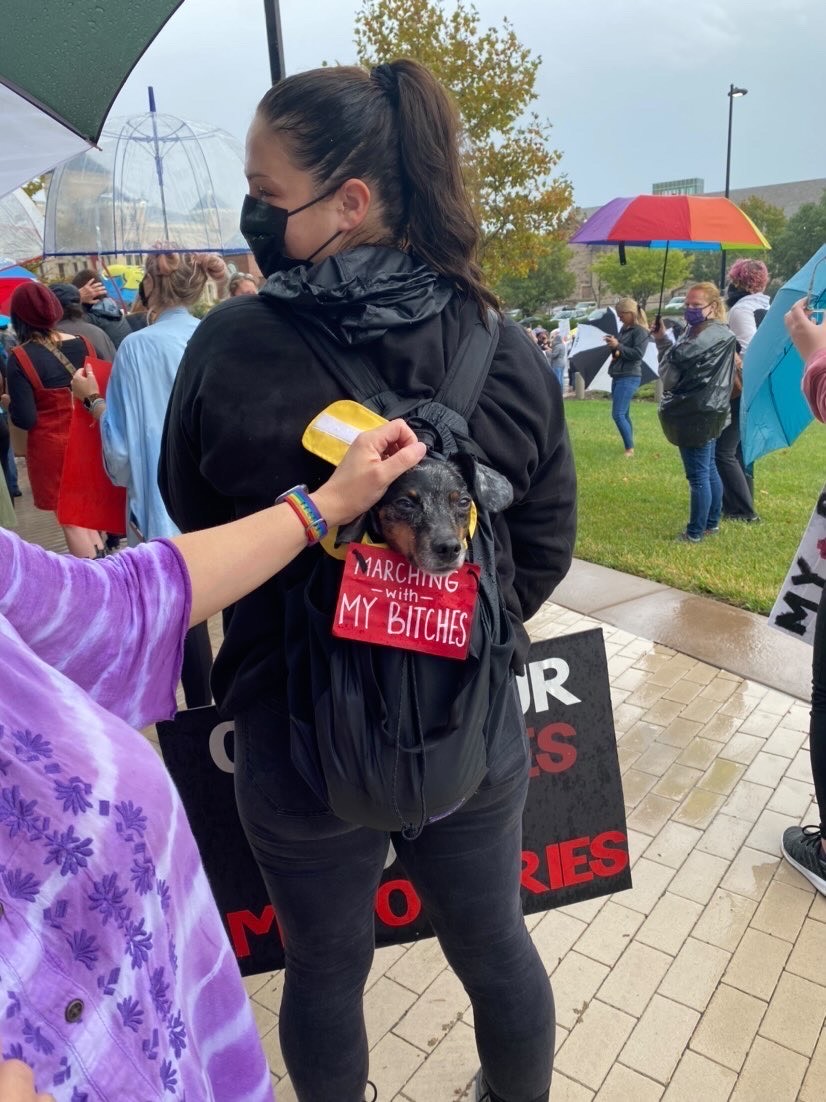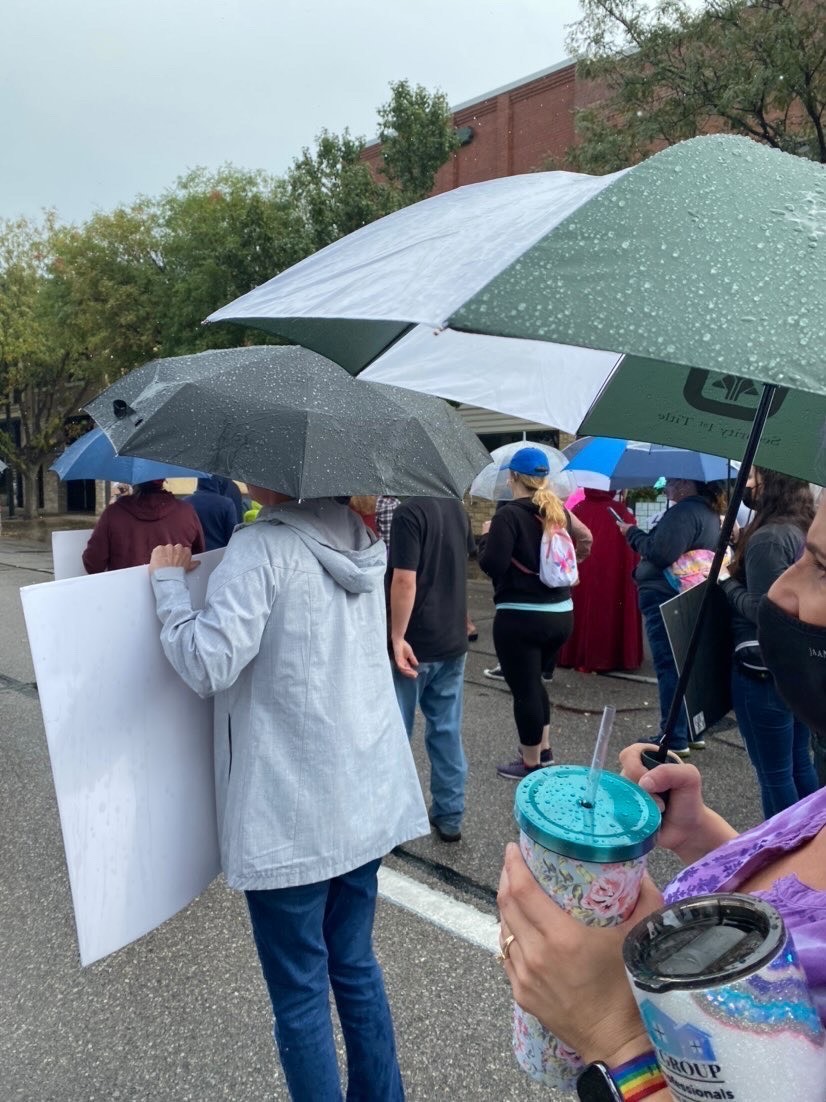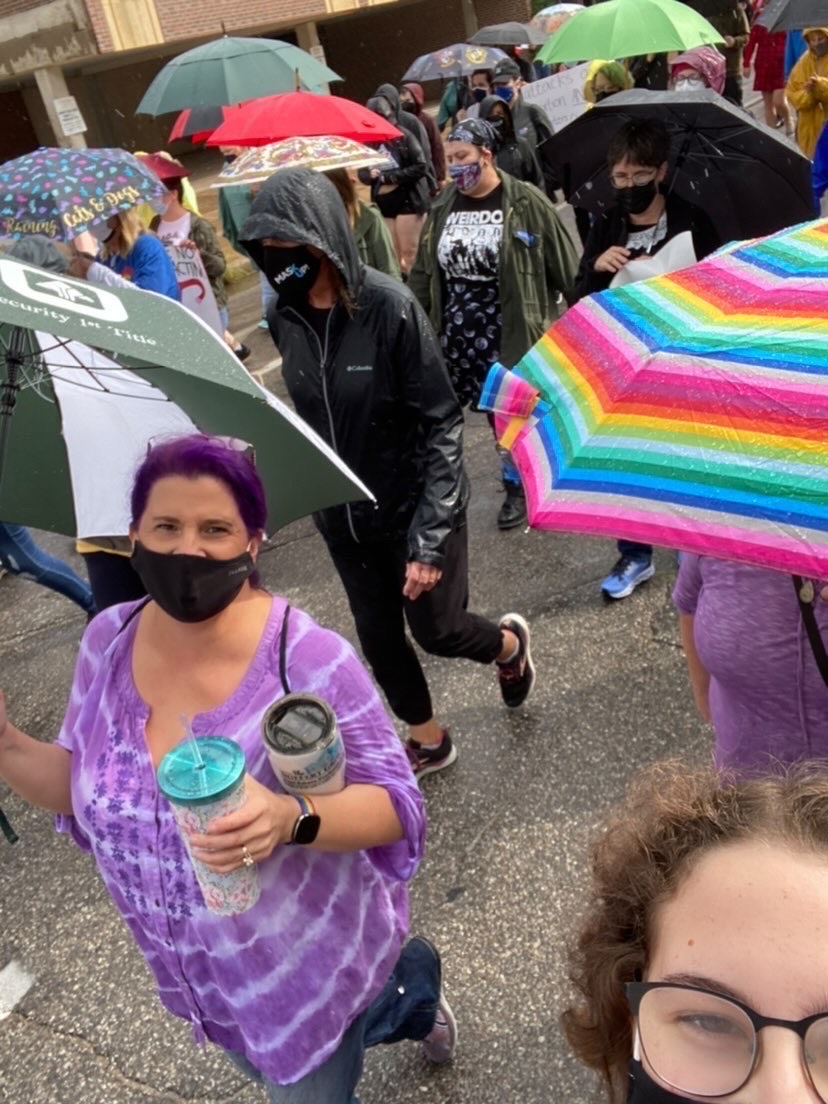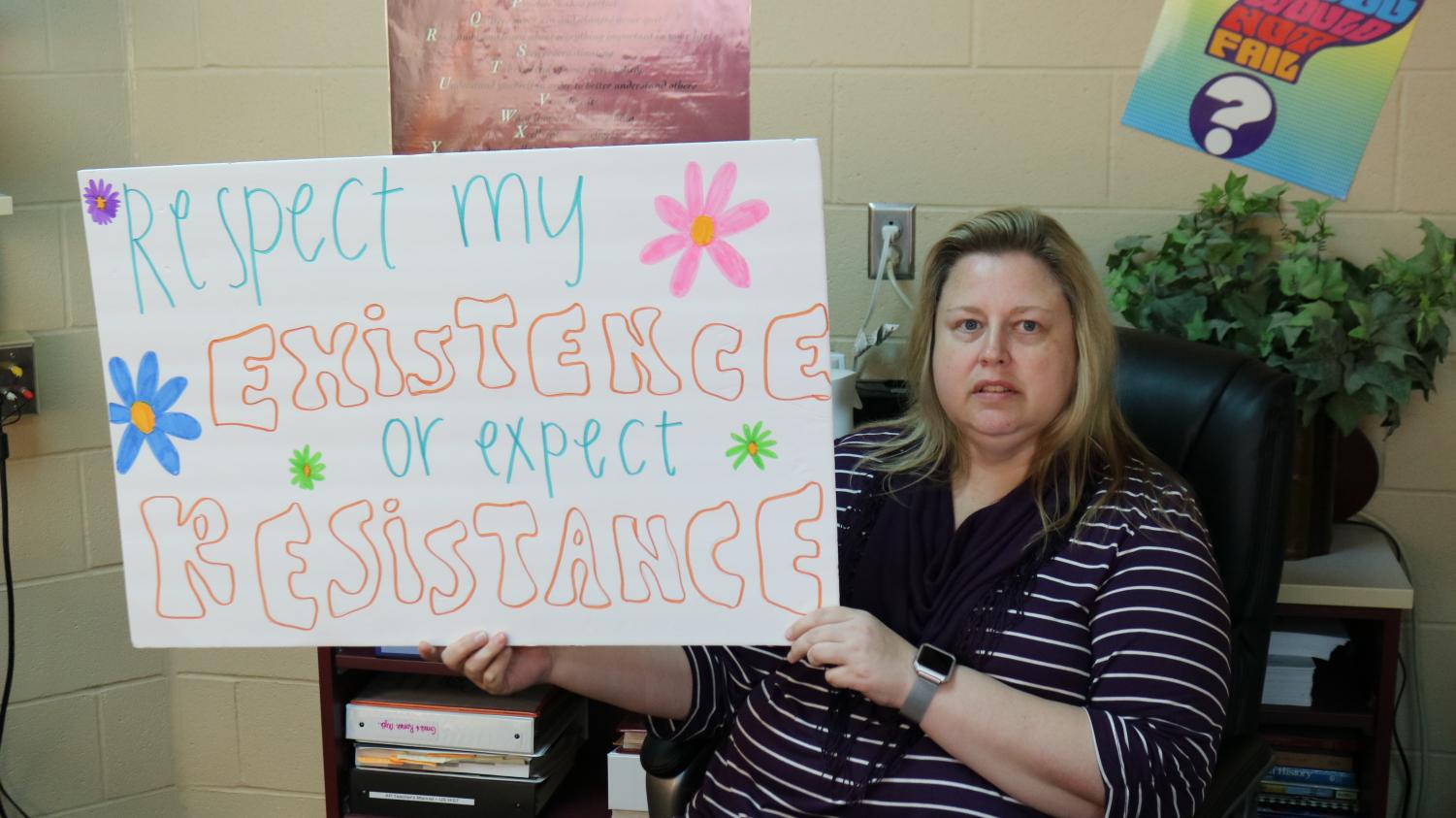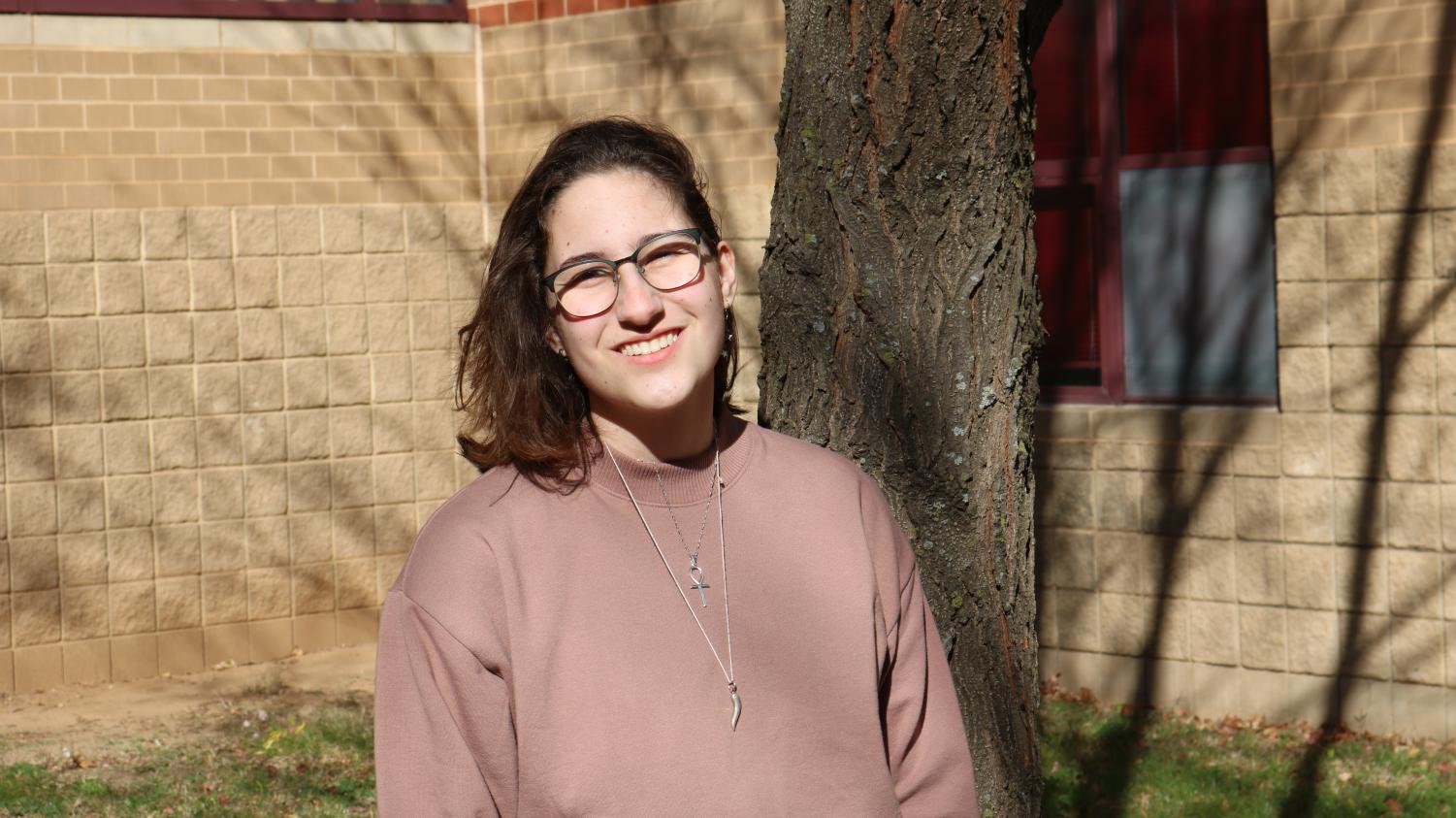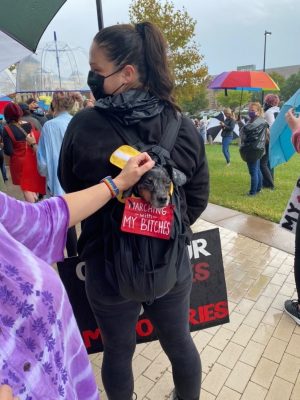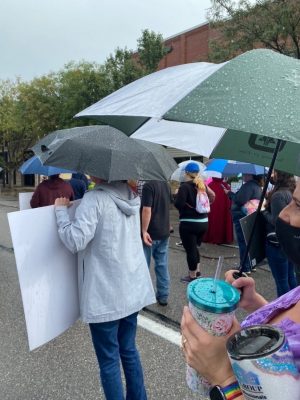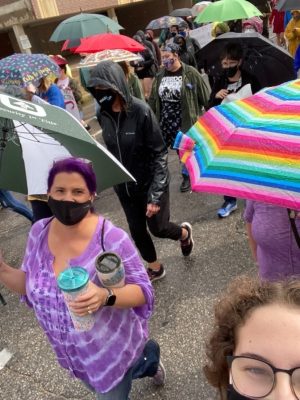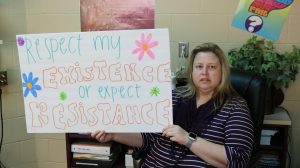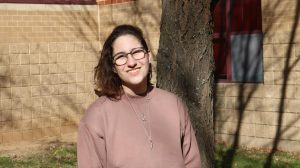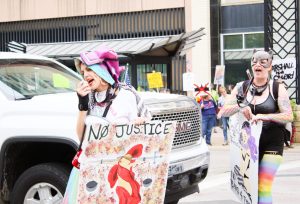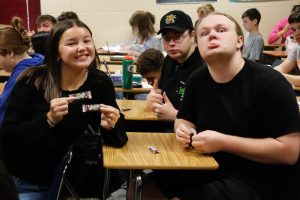How student activists can change the world
December 24, 2021
In June 2020, an 11-year-old Black girl, Jolia Bosette, stood in front of all her classmates at their fifth-grade graduation.
With a confident voice and wisdom beyond her years she said to the class, “See, when I was younger, teachers used to ask kids what they wanted to be when they grew up… The thing I want to be when I grow up is alive.”
A shocking statement from a child so young. However, many students like her have been speaking out about pressing issues in order to bring awareness.
“Student activism has increased in recent years because students are becoming aware that the political system right now isn’t working for us,” sophomore Gillian Noffert said. “Nor is the school system; and the adults, who like our parents, our teachers, they’re not doing anything about it. And so now it’s been passed down to us to do something about it.”
Noffert, who is the vice president of the Democrats club at Derby High, is an outspoken activist. She campaigns for political or social change through many different avenues.
“I worked at Sunrise and I worked for Prairie Roots. Last year I worked for Barbara Bollier to help attempt to get her elected,” Noffert said. “Prairie roots is a grassroots movement… It’s basically to get to know Kansans and try to figure out what issues are important to Kansans and try to know our state a bit better. Sunrise is a political climate change activist group. There are chapters all throughout the U.S. and I was part of the Wichita chapter.
Emily Williams, the DHS Democrats sponsor, encourages her students to participate in activism and to give back to their community.
On Oct. 2, the club went to the Women’s March on Wichita to support women’s reproductive rights.
“They made some signs for the march, and I still have them,” said Williams, who was holding up some of the posters. “This one says, ‘Respect my existence or expect resistance,’… I think they’re definitely going to be some future leaders. And I think it’s important to give them the place to do that and help kind of guide them along.”
However, not all student activists are met with the same positivity.
“Many people or like adults will call me pretentious or tell me that I don’t know what I’m talking about,” Noffert said. “But they don’t realize that young people. Well, we are the next generation and there is power in numbers and our generation is huge and our generation is determined and we have this immense drive for change and an immense drive for justice.”
Sean Wentling, a former DHS Democrat and Wichita State University student, managed to create a change within his own community even after high school.
“Most recently and importantly for me was a petition I did in July. It involved multiple different community and youth groups around Sedgwick county. We petitioned the Wichita city council to establish a sustainability board, which they ultimately did.”
Senior Emi Beran and sophomore Kaleysia Thompson created the NOW club, DHS’s first feminist club.
“There are some students here who said they don’t feel comfortable going to male teachers talking about like sexual assault, you know, all that. So we made a club where those girls can go and talk to us about it and we can still help them without feeling uncomfortable. A kind of safe space for them,” Thompson said.
She believes that student voices can change the future outside of the club and school as well.
“For example, the Black Lives Matter movement. I don’t think in the past, nothing big ever happened like that. And I feel like we’re going to do more stuff in the future like that,” Thompson said.
Wentling and the other student activists are hopeful for the future, where everyone has a place in it.
“If we have a continued increase in civic engagement for youth, then we will see a much more progressive, more equitable and much better world than we have now,” he said. “I see us taking it to a more progressive place. One with more inclusivity, and hopefully more equity than we see now whether it be socioeconomic status or a lack of discrimination in the future on any basis.”



